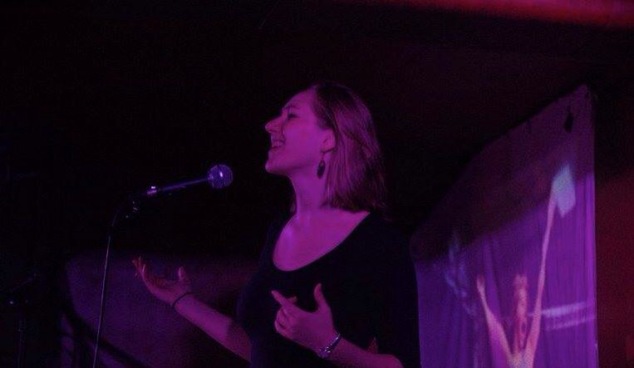Part 2
“How has your journey been with the Fulbright?”
“There is something really interesting about being an outsider and deeply studying an art form of another culture. I’m not looking at really established artists. I’m looking at people who have different day jobs and are doing poetry on the side because they love doing it. Also, performance poetry hasn’t gotten a lot of traction in academia yet. Partially because it’s new and because it’s perceived as low-brow art. I understand where that perception comes from but I still think performance poetry deserves more critical attention.
I’ve been welcomed (into Scotland) completely. I’ve never felt the sense of ‘what are you doing here?’ or ‘You’re from the States so you can’t perform at our Open-Mics!”. It’s never been that way at all. For me as an academic and an artist it’s been really good to have a dual identity because sometimes as an academic you get super wrapped up in your work and ideas, concoct these theories that are detracted from real life. It’s been really good for me to do the critical research and go out to Open-Mics where I’m talking to poets and I’m constantly having to suss out my ideas. I moved here six months ago, so I question what authority I have over these concepts, over people who have lived here for their entire lives. I definitely don’t want to be perceived as ‘Oh that American chick coming in and telling us what we think’ because that’s absolutely not where I’m coming from.
One thing that has been important to me throughout the entire process has been constantly going to everything that I can go to and talking to people.
When you’re looking at performance poetry you can’t ‘Jstor’ it! And through that way I’ve met some amazing people and gathered a lot of research.”
“What is the future for spokenword in Scotland?”
“Here, spokenword will just keep booming. It’s such a massive scene. It really started exploding about ten or fifteen years ago with Jem Rolls and Anita Goven, folks like that who were here and really brought spokenword up. Now, there are new events all the time, new gigs. Loud Poets are only a year old and are already established in the scene. Audiences are hungry for spokenword!”
“Why do you think people are coming out for spokenword? What do they want?”
“I think they are attracted to the high energy component of spokenword. Going to a Loud Poets show does not sound like ‘I’m going to a poetry night’. It sounds like ‘I’m going to a show and I’m going to be entertained’ but not in a cheap, low-brow way. It feels like ‘I know I’m going to see incredibly high quality work from really good artists but it’s going to happen at a snappy pace and I will see a huge range of styles so if I hate one poet, I’m going to love another poet. I’m going to see new faces.’ The latter is true of most poetry nights here. They have an emphasis on putting new talent out there, hosting really great seasoned performers as well, and try to maintain a gender balance. So, I think people are attracted to the energy and the poetry. They want something they can relate to, something that is honest. It’s the sense of being at church, saying “I feel that” much like you would say in regards to a hymn.”
– Glasgow, Scotland
Photo Credit: Mike Berry


Reblogged this on Kathryn Ailes and commented:
Halah Mohammed has posted the second part of our interview on her blog: read here!
LikeLike